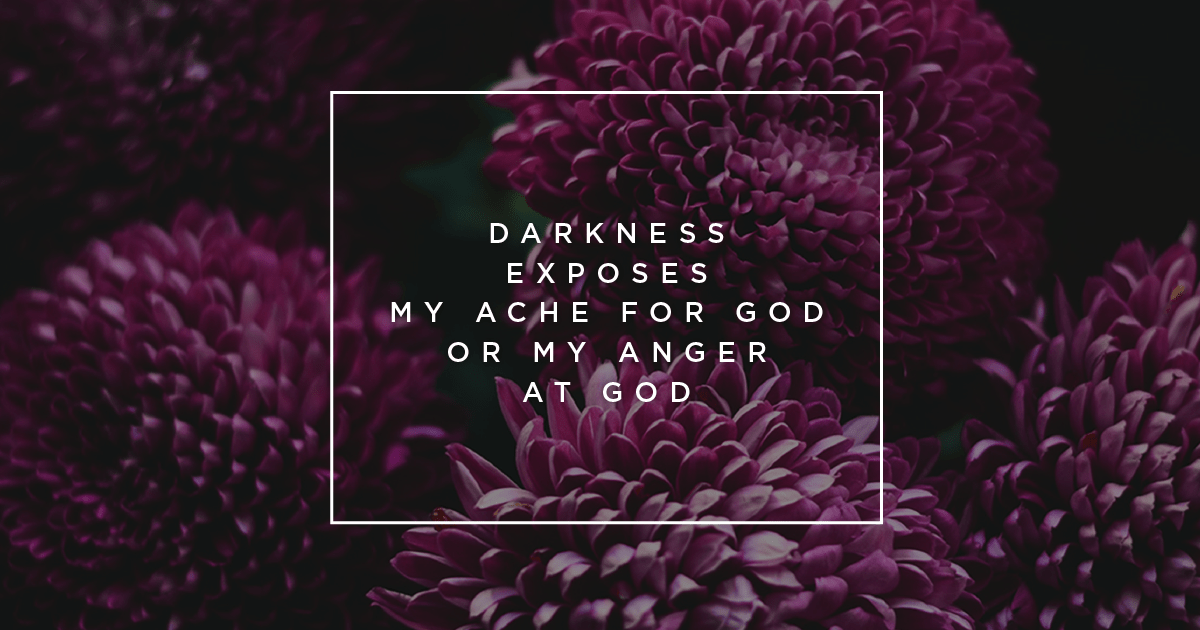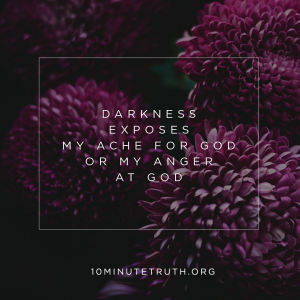I sat in a wheelchair in my parents’ house, weak and recovering from the sudden respiratory failure that had nearly taken my life and the life of my firstborn son.
I had imagined myself as the best of parents — an eventual mother to many. And now I sat, unable to move under my own power and unable to care for my premature baby, who lay in an incubator miles away. They told me he would be my only child; they had no answers for my coma, so I should plan to have no more children.
I had been a good girl, more or less, my whole life. The daughter of a pastor, I’d sat in a church pew every week since I was born, never falling away into the parties and addictions of my friends. I was responsible. Faithful. An excellent student. I had a good job, a good marriage, a good life.
Now, I was angry at God. What happened to my story? I cried. Why have you done this?
—
The people at the end of Isaiah 8 had rebelled against the Lord and dealt corruptly with one another (Isaiah 1). They have been idolatrous and greedy (Isaiah 2). They have proudly proclaimed their evil sins as good, and they have crushed the faces of the poor (Isaiah 3). They have enjoyed a life of plenty, and have continually sat down at a feast of good things without thankfulness (Isaiah 5).
Now, they are being judged by the Lord who made them. They are empty and anxious. Instead of facing their sin, they lift their faces to denounce their God.
They will pass through the land, greatly distressed and hungry. And when they are hungry, they will be enraged and will speak contemptuously against their king and their God, and turn their faces upward. And they will look to the earth, but behold, distress and darkness, the gloom of anguish. And they will be thrust into thick darkness (Isaiah 8:21-22).
There is kind of darkness that accuses God.
Why have you done this?
—
Jesus came not to be served but to serve (Matthew 20:28). He always did what was pleasing to the Father (John 8:29). He knew no deceit or sin (I Peter 2:22). He was tempted in all ways but did not falter (Hebrews 4:15). He died an innocent man at the hands of the guilty (Acts 2:23).
Now, he is being killed by the people He made. He is lonely and dying. Instead of blaming the sin of others on God, he lifts his face to long for His Father.
Now from the sixth hour there was darkness over all the land until the ninth hour. And about the ninth hour Jesus cried out with a loud voice, saying, “Eli, Eli, lema sabachthani?” that is, “My God, my God, why have you forsaken me?”(Matthew 27:45-46)
There is a kind of darkness that aches for God.
Where have you gone?
—
Two different disasters, two different darknesses. In my wheelchair, I sat in a haze with the Israelites of Isaiah 8, unaware of my hidden heart-sins, raising my fists up to God and looking down at the shattered promises of earth.
All of my good deeds were nothing, and all my righteousness filthy rags. They hadn’t brought me more Jesus, they’d brought me more me. I had obeyed without loving, prayed without believing, worked without trusting, learned without knowing.
I didn’t miss my perfect Father. I missed my perfect plans.
Why have you done this?
Or Where have you gone?
I know which kind of darkness was mine — I know I depended on myself and my script instead of God — because, in the end, I asked the wrong question.
—
Isaiah 8 is such a bleak spot, but oh, the hope coming for us in Isaiah 9, even for those of us like me who rebel and ask the wrong questions!






0 Comments